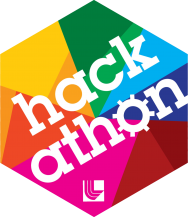Disclaimer: This article is more than two years old. Developments in science and computing happen quickly, and more up-to-date resources on this topic may be available.
Each new season brings another hackathon, and Computing’s summer event took place on August 12–13. The event was sponsored by LLNL’s Center for Applied Scientific Computing (CASC) and Livermore Computing (LC) divisions and organized by Stephanie Brink (CASC), Tammy Dahlgren (LC), and Stephen Herbein (LC). Although most of the event was held virtually, participants who were approved to collaborate onsite while following the Lab’s strict safety protocols could pick up grab-and-go snacks. Teams pre-recorded their presentations ahead of a live Q&A session on the second day.
'Keep Your Ideas Alive'
Ian Lee, who serves as Computing’s Alternate Organizational Information System Security Officer, kicked off the hackathon with a presentation titled “When a Hackathon Project Ends…Does It Make a Sound?” He gave participants a larger picture beyond the event’s concentrated 24 hours, detailing how he has shepherded hackathon projects into real-world applications with benefits to a wide group of users and developers across the Lab.
For example, since becoming involved in hackathons in 2016, Lee has worked on web best practices including the Lab’s *.llnl.gov website template, LC’s user dashboard, online catalogs and templates for open-source software repositories, and government web design standards. With Python as his “language of choice,” Lee has also helped build a Python package ecosystem for Lab developers. “The hackathon was the seed for this greater effort, and today our internal Python resource website receives about 3,000 hits per day,” he stated.
Lee continued with examples of hackathon ideas that spun off into other projects and attracted other developers along the way. More recently, he has been experimenting with Docker and OpenShift container technologies, which LC staff are integrating into high performance computing (HPC) systems. “Find people who have similar interests and trade ideas with them. Information sharing is a valuable aspect of the hackathon,” he advised. “Keep your ideas alive. Hackathon projects have a way of turning into real services that people at the Lab rely on daily.”
Students Are Always Invited
Computing’s summer interns are encouraged to participate in the event, as was the case with the HPC Cluster Engineer Academy, a nine-week internship that provides students with experience running and maintaining supercomputers. David Fox, a mentor from LC’s Systems Administration Group, states, “I usually share with students an idea for the hackathon, and they can join me if they want.”
This year, a pair of HPC Academy students worked on porting a chess algorithm to LC’s clusters to gauge the algorithm’s performance. Another student investigated configurations of the Slurm batch scheduler and resource manager that helps users run jobs on the clusters. Other HPC Academy hackathon projects included a Kubernetes online tutorial, coding a Linux system daemon, and developing REST APIs with the Flask Python framework.
Dahlgren, a computer scientist in LC’s Tools Development Group and first-time hackathon organizer, stated, “Hackathons provide a great opportunity for people to grow their knowledge and abilities. They can work on interesting problems, learn new skills, or collaborate on solving interesting problems with people with whom they don’t normally work.” The next Computing hackathon—our 30th—will be scheduled in the fall.
Image above, clockwise from top left: summer hackathon kickoff speaker Ian Lee, co-organizer Stephen Herbein, and co-organizer Stephanie Brink. Not pictured: co-organizer Tamara Dahlgren.
—Holly Auten


